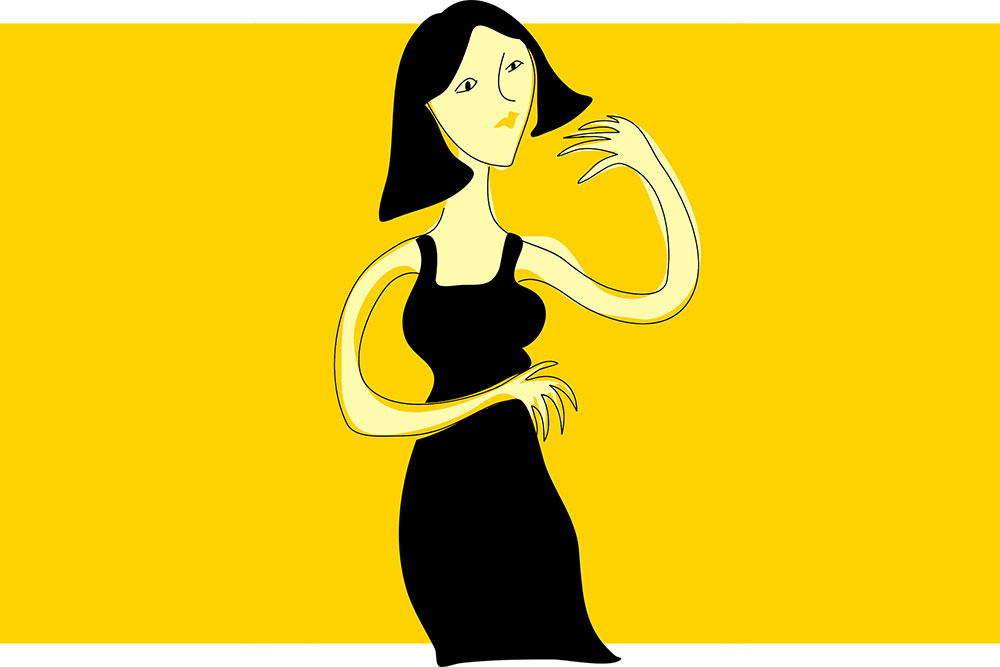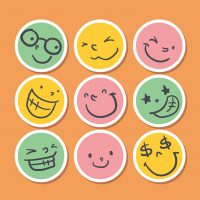What Are Cognitive Distortions?
Published on October 9th, 2019
Updated on January 10th, 2024

Cognitive distortions are ways of interpreting situations that make you think in the negative. Cognitive distortions fuel negative core beliefs about yourself and the world around you. They create a negative self-image and low self-esteem. They can also create paranoid thoughts and invalid assumptions about others.
Cognitive distortions cause people to see the world through a negative lens. They create conflict within ourselves and with the people around us. When we think with cognitive distortions, our expectations about the future, ourselves or others, and the outcome of challenging situations are all impacted negatively. Cognitive distortions hold us back from living fuller and happier lives.
Types Of Cognitive Distortions
Cognitive distortions are essentially erroneous patterns in thinking. They occur out of habit, and most people experience at least 2 types of cognitive distortions regularly. Typically, people do not even realize they are thinking with cognitive distortions until they learn more about what a cognitive distortion is and how it affects their thinking.
Sponsored by

Choose a therapist to work with and start healing with 20% off from BetterHelp.
Click HereThere are several different types of cognitive distortions. Below is a list of some of the most common cognitive distortions we experience:
All Or None (Always Or Never) Thinking
All or nothing thinking is when a person thinks in the extremes of all or nothing.
Have you ever had something unpleasant happen and think, “Ugh! This always happens to me!” or “Jeez, I will never get this right!”…
Not very positive, right? How would it be different if we were to think, “Man, this is frustrating, but [I can do it] [it will pass] [it will be better next time] [I can learn from it].”
Labeling
Labeling is a habit of creating a label for someone or something and treating it based on the label, not the situation itself. When a person labels another person, a situation, or an issue, they can only see through the lens of the label.
Justine hosted a dinner in her home one night, and the food she made was burnt, overcooked, and overall just not good. At some point, Justine had made a mistake that caused her to ruin the meal she was cooking. The feelings of embarrassment and frustration caused her to label herself as a terrible cook.
Because Justine created a label for herself as a terrible cook, she was never comfortable or confident in trying again, even when her friends encouraged her to keep trying. Her friends were forgiving of her mistake and did not think much of it, but since Justine labeled herself as a bad cook she never tried to rebuild her confidence in her cooking skills.

Focusing On The Negative (Filtering)
Focusing on the negative (AKA filtering) is focusing on the negative points of a situation. When focusing on the negative, the positive or neutral details of a situation are ignored.
Loretta was working hard on a spreadsheet for work. On this spreadsheet, she needed to label 100 different orders made for one month. She worked tirelessly and felt confident when submitting the completed spreadsheet to her boss, but her boss caught one error. On the 100 orders Loretta recorded, she only made one mistake.
Instead of feeling confident and proud of her hard work, Loretta beat herself up for that one mistake. The 99 completed orders were not important in her mind. The one correction replayed over and over in her mind for the rest of the day and she felt like she failed.
The Shoulds
The shoulds are a surefire way to fuel “focusing on the negative”. How often do you hear the word “should”?
When we look at the ‘should’ we ignore what is.
If that same baseball player is thinking “I should have slid later”, what does that turn into? “I messed up, I let my team down, I should be better, I should know better”.
That’s a lot of beating himself up for something that just didn’t work out. The more we use “should”, the more we lose sight of what is: “but hey, I scored 3 points for my team! 3 home runs out of four is pretty impressive!”
The ‘shoulds’ translate to “not good enough”. Is that fair? Of course, we should always shoot for healthy growth and improvement, but it becomes unhealthy when we are being too critical of ourselves.

Predicting The Future
When we assume the outcome of a situation we are setting ourselves up to miss out on possibilities for a better or more exciting future.
Nobody knows what the future holds. Sometimes we learn from experience that certain events have certain outcomes, but what would happen if we began to challenge those outcomes?
Cindy always wanted to be a singer and she knows she has a voice, but she gets so nervous in large crowds. She is sure she will never be a performer.
Cindy has predicted she will fail and therefore never tried. She cut herself off from the possibilities her future would have held.
Courtney practices and tries hard but has not gotten picked for the soccer team. Every year Courtney improves and maintains the attitude: “I hope I will get picked, but if I don’t I will learn from it, try harder, and maybe get picked next year”, so she has much better odds than Cindy!
Overgeneralization
Overgeneralization is when we conclude on a massive scale based on what we know about one or a few instances. Have you ever known a child to be so afraid of one type of animal that whenever they see that animal they have a total meltdown?
Like when Sandy starts to scream and cry whenever she sees a dog walking with its owner on the street? Well, Sandy was once knocked over by her neighbor’s two big and rambunctious dogs. When she fell she hit her head and had to get stitches.
Because of this one incident, Sandy has convinced herself that all dogs are dangerous, which has made her afraid of all types of dogs.
Sandy does not acknowledge or give credit to the good dogs that have not hurt her. She only focuses on those two big dogs that knocked her on the ground and hurt her.
This can be opened to more universal concepts, like a woman who was beaten by her father as a child may grow up to believe that all men are dangerous and angry and will hurt you.
Mind Reading
Mind reading is when we assume that we know what others are thinking in reaction to what we are doing.
Fred failed his math test. When he saw his grade on his paper he immediately hid it and thought, “everyone is going to think I am stupid”. Is that a fair thing to say? Because that math test was hard and more than half the class failed, too.
Mind reading causes us to assume that others are seeing us in a negative light. This holds us back from positive interactions with others and causes us to have a negative self-image.
Catastrophizing
Catastrophizing is assuming the worst will happen.
“If I submit this paper late I will fail my class and I will be kicked out of school because I am not good enough and end up homeless with no friends”.
That went from A to Z pretty quickly, right? With catastrophizing, we expect something to not go well and assume the absolute worst will happen. “If I am so preoccupied with being homeless on the street, how can I possibly complete my paper on cognitive distortions? My worrying about it being late will either make me finish it late or not finish it at my fullest potential! No matter what, I am going to fail and be homeless, so I should start preparing for that!”.
Emotional Reasoning
No reasoning should ever be done when emotions are high because emotions are not rational. Emotions will affect our conclusions because we will be seeing through the lens of feeling.
If we feel awkward then we believe we are awkward. This fuels awkward behavior, creating a self-fulfilling image. In feeling awkward, you begin to act awkwardly, which makes you appear awkward.
Personalization
Personalization is when we take something that does not have to do with us and make it about us.
Randy is speaking with Emily and Liz. Liz brings up how she does not like when people are rude and goes into a story about a recent experience. Randy assumes this was brought up because Liz believes Randy is rude and suddenly becomes uncomfortable. He may try to figure out what he did wrong to come off as rude when in reality Liz’s comment has nothing to do with him.
Jumping to conclusions
Have you ever assumed what someone was going to say or do and reacted to the assumption?
Have you ever ended up being wrong about what you expected will happen? When we jump to conclusions we do not let the situation have the chance to pan out naturally.
Courtney was on a date with Lenny when Lenny got a call from a friend inviting him to play golf. When Lenny responded saying “I wish I could join but I have plans today. Let me know when the next game is” Courtney jumped to the conclusion that Lenny would have rather played golf, and acted toward him for the next several hours.
Courtney’s jumping to conclusions caused her to believe that Lenny wished he could be with his friends when Lenny was only being polite when declining an invitation from a friend.
Sponsored by

Find an affordable therapist online with 20% off from BetterHelp.
Click Here






Leave A Reply